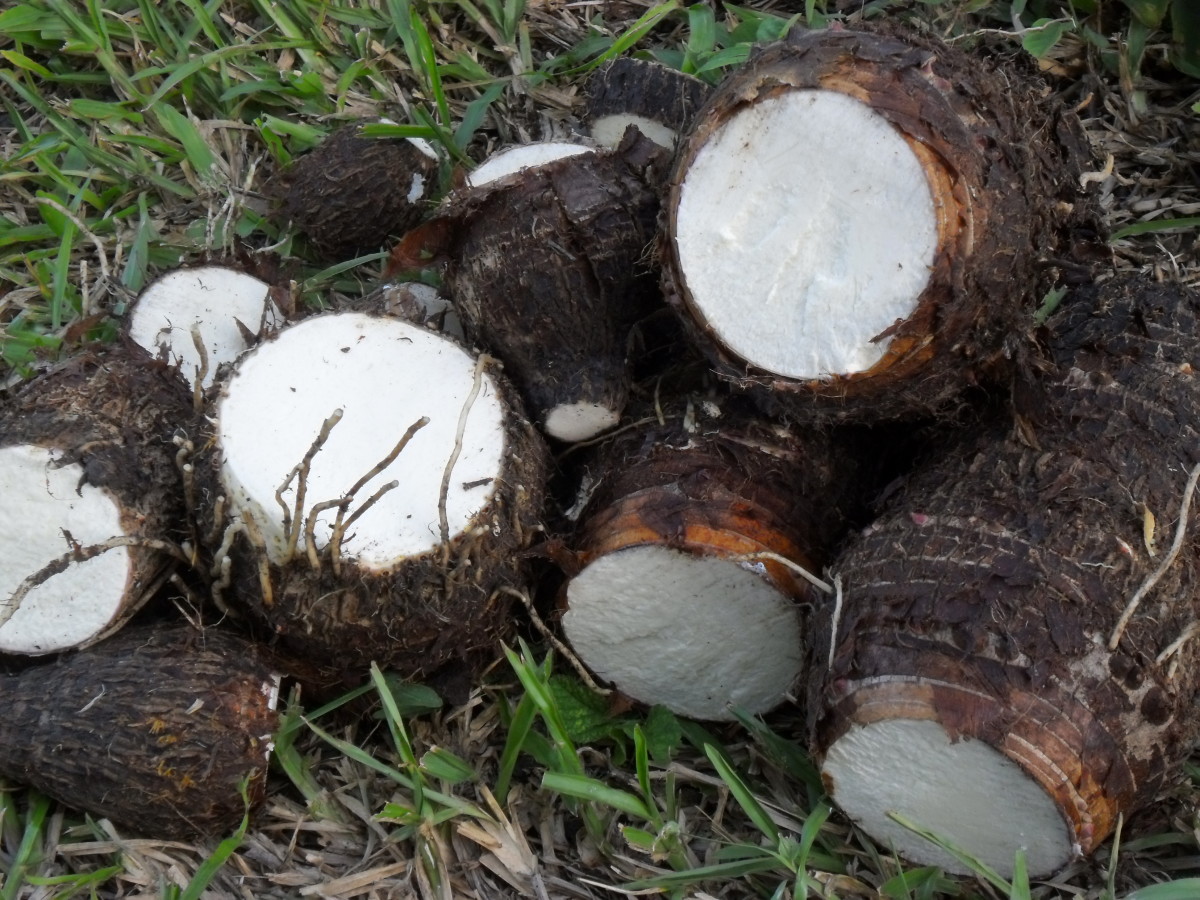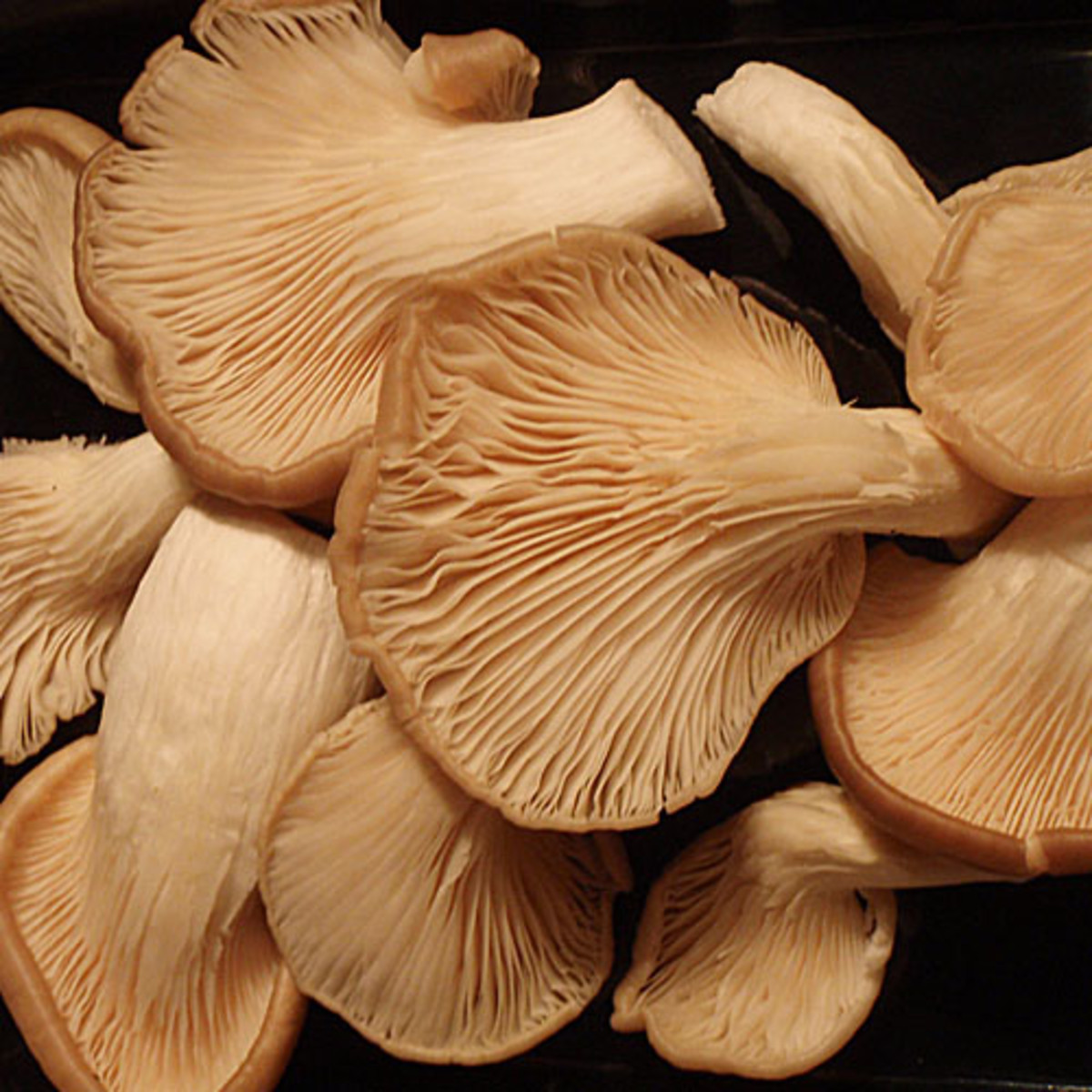Mountain Yam
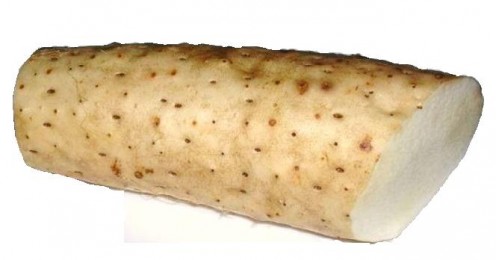
Mountain yams are considered rare tubers from the yam family. They have a number of other names - Chinese yams, Korean yams; or scientifically - dioscorea japonica, dioscorea opposita, or dioscorea batata, as long as it includes the taxonomy term dioscorea which means yam. But they are most commonly referred to as either Japanese mountain yams or simply mountain yams, while in Japan, they are known as nagaimo or yamaimo. These tubers are not to be confused with mountain potatoes. The unique aspect of these vegetables is that they are the only type of yams that are edible raw. Mountain yams are also high in carbohydrates and potassium.
Gloves are usually worn during preparation as it is common for most people to experience itching while handling these tubers. In order to reduce chances of irritation, mountain yams would be soaked in a solution of water and rice vinegar to neutralize the irritant oxalates found in their skins.

Characteristics
Physically, mountain yams are long tan-colored roots with coarse surfaces and with eyes similar to those on potatoes. Their flesh is starchy and extremely sticky, and becomes slimy when julienned or grated, which sets them in the mucilaginous vegetables category. They also don't store well so mountain yams have got to be consumed shortly after purchase.
A mountain yam's taste is quite bland, lacking a distinct flavor. When sliced into pieces and consumed raw, it has a nutty texture, while its boiled counterpart has a creamy and starchy feeling when chewed.
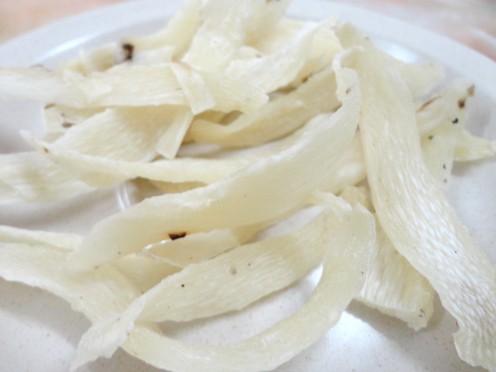

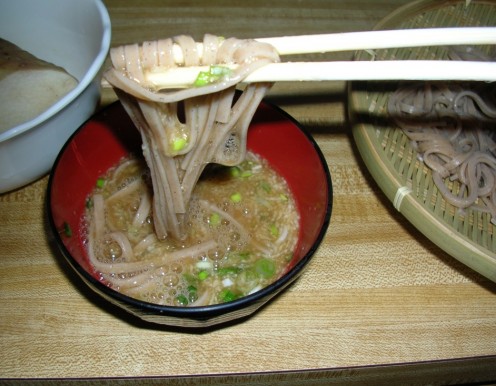
Usage
In Chinese herbology, these tubers are used in homeopathy as remedy. In cooking, they are used to make a variety of dishes. Dried sliced mountain yams are usually cooked in soups but have got to be macerated for approximately a couple of hours before used. Uncooked mountain yams are commonly used in Japanese cuisines, such as in the batter of the popular okonomiyaki, a grilled Japanese savoury pancake containing cabbages and eggs, and a variety of other ingredients, served with mayonnaise and katsuobushi or bonito shavings (smoked dried fermented skip-jack tuna), or for tororo (grated raw mountain yam), which can be served over hot rice or used in a cold soupy noodle dish called tororo udon that consists of tororo itself, blackbean udon noodles, sliced green onions, wasabi, and a host of other ingredients mixed together.

Mountain Yam Nutrition Facts
100 g of steamed mountain yam with salt contains:
- Calories 82 g
- Calcium 8 mg
- Potassium 495 mg
- Carbohydrate 19 g
- Protein 1 g
- Cholesterol 0 mg
- Fat 0 g
- Fibre 25 g
- Iron 0.5 mg

First published on July 25, 2011
Resipes using mountain yam
- Best Recipe - Okonomiyaki World - Recipes, Information, History & Ingredients for this unique Ja
The Best Okonomiyaki Recipe (Okonomi-Yaki, Japanese Pancake, Japanese Pizza) - Osaka Style, w/ or w/o special ingredients such as Okonomiyaki Flour. - Mountain Yam with Plum
- Ganmodoki
A recipe to make ganmodoki. - Okonomiyaki aka Japanese Pizza Recipe - Visual Recipes
Okonomiyaki aka Japanese Pizza recipe with step-by-step pictures.
Other interesting vegetables
- The Other Colors Of Cherry Tomatoes
An interesting article about the various types and colors of cherry tomatoes.





